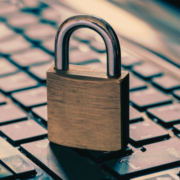Cybersecurity For Freelancers: 8 Ways To Protect Your Digital Workspace
Freelancing offers freedom and flexibility, but it also comes with the responsibility of protecting your digital assets. After all, a security breach can be devastating; it can disrupt your workflow and put critical client information, project files, and financial records at risk. With good cybersecurity habits, freelancers can better protect their work and personal information. This includes creating tough passwords, using extra security steps like two-factor authentication, and regularly updating their software. Check out the details below.
Table of Contents
Use Strong, Unique Passwords
The first step is building a secure foundation. This means using unique and strong passwords for all your accounts. Ideally, your password should be at least 12 characters long, with a mix of big and small letters, numbers, and symbols. It’s also best to avoid simple, easy-to-guess choices like common words or numbers in order.
Consider using a password manager for your Mac, Windows, or Linux computer to securely store and generate complex passwords for your accounts, enhancing your defense against cyber threats and simplifying password management.
Enable Two-Factor Authentication (2FA)
Two-factor authentication (2FA) enhances security by requiring two forms of identification to log in: your password and a code sent to your phone or generated by an app. This method adds a significant layer of protection, making it much harder for unauthorized users to access your accounts, even if they know your password. With two-factor authentication, you can cut down on the risk of online threats like phishing and data breaches.
Regularly Update Software
Regularly updating your software is essential for keeping your digital security tight. These updates often include patches that fix security holes, blocking hackers from sneaking into your system. By keeping your operating system, apps, and other software up to date, you prevent hackers from exploiting any weaknesses.
Meanwhile, setting your devices to update automatically ensures you always have the latest protections without the hassle of doing it manually, which significantly boosts your defense against potential online threats.
For freelancers, who often rely on a patchwork of technologies and may lack the resources for a dedicated IT department, consulting or partnering with IT companies like Cutting Edge Technologies can be particularly beneficial. These companies provide critical updates and cybersecurity tools that can protect freelancers from emerging threats.
Furthermore, managed IT services offer secure cloud storage, robust antivirus software, and VPNs, all tailored to enhance digital security on a more individual scale. This support goes a long way in helping freelancers safeguard their work and client data against potential cyber threats, which is crucial for maintaining professionalism and trust in a competitive market.
 Utilize Antivirus and Anti-Malware Software
Utilize Antivirus and Anti-Malware Software
Antivirus and anti-malware software are crucial for cybersecurity; they monitor your system for malicious activity and block threats in real time.
When picking out antivirus and anti-malware software, you’ll want to make sure it works smoothly with your operating system and doesn’t slow down your computer too much. Also, look for key features like real-time scanning, automatic updates, and heuristic analysis, which help catch new, unknown threats. Moreover, consider how much it costs, whether it covers all your devices, and if it includes extras like a VPN or backup tools.
In the end, just make sure the software you choose fits your specific needs and helps keep your work seamless and secure.
Secure Your Wi-Fi Connection
Securing your Wi-Fi connection is also crucial for protecting your online activities from cyber threats. Start by using strong encryption protocols like WPA2 or WPA3, setting a complex, unique password, and hiding your network from public view to reduce unauthorized access risks.
Moreover, employ a VPN to encrypt your internet connection on public Wi-Fi, preventing hackers from intercepting your data. These steps collectively bolster your cybersecurity, securing your browsing activities and personal information.
Backup Your Data
Backing up data is crucial for freelancers to prevent catastrophic data loss. Using both physical (such as an external hard drive) and cloud-based storage solutions ensures copies of your data are stored in multiple locations, protecting against various risks.
Consider automating this process to ensure that the most recent versions of your files are regularly saved without manual effort, providing a safeguard against threats such as ransomware attacks or hardware failures. This strategy not only secures critical files and information but also ensures minimal disruption in your workflow.
Educate Yourself on Phishing Attacks
Phishing attacks are a prevalent method used by cybercriminals to steal sensitive information through deceptive emails that look legitimate. These emails typically prompt you to enter personal details or click on malicious links.
As a freelancer, you need to stay alert to various phishing attacks that could target you. Email phishing involves seemingly legitimate emails asking for sensitive information, while spear phishing is more personalized, often mimicking known contacts to extract details or money. Whaling attacks, on the other hand, target high-profile freelancers with fake critical business communications.
To protect yourself, be wary of unexpected email requests, text messages, or calls that can be used to trick you into compromising your data. Also, check the authenticity of the sender’s email address and verify suspicious communications by contacting the organization through official means.
Furthermore, watch out for scams on social media and fake job offers that ask for personal details or payment. Always verify requests and use security measures to protect yourself from these sophisticated scams.
Monitor Your Accounts Regularly
Keep a close watch on your accounts for any unusual activity. Be aware that cyber criminals can also find your phone location by number, making it crucial to monitor any unauthorized access attempts closely. This may include changing your password, notifying your bank, or informing your clients to prevent further damage.
Continue Reading: How Important is Cybersecurity for Freelance Writers?
Conclusion
For freelancers, securing the digital workspace is not just about protecting personal data—it’s about safeguarding your work and your reputation. By implementing these eight cybersecurity measures, you can significantly reduce your risk of becoming a victim of cybercrime and ensure that your freelance business remains robust against the evolving threats in the digital world.
Remember, the cost of preventing an attack is invariably less than the cost of recovering from one, making cybersecurity an essential investment for any freelancer.



 Freelancers-copywritercollective
Freelancers-copywritercollective